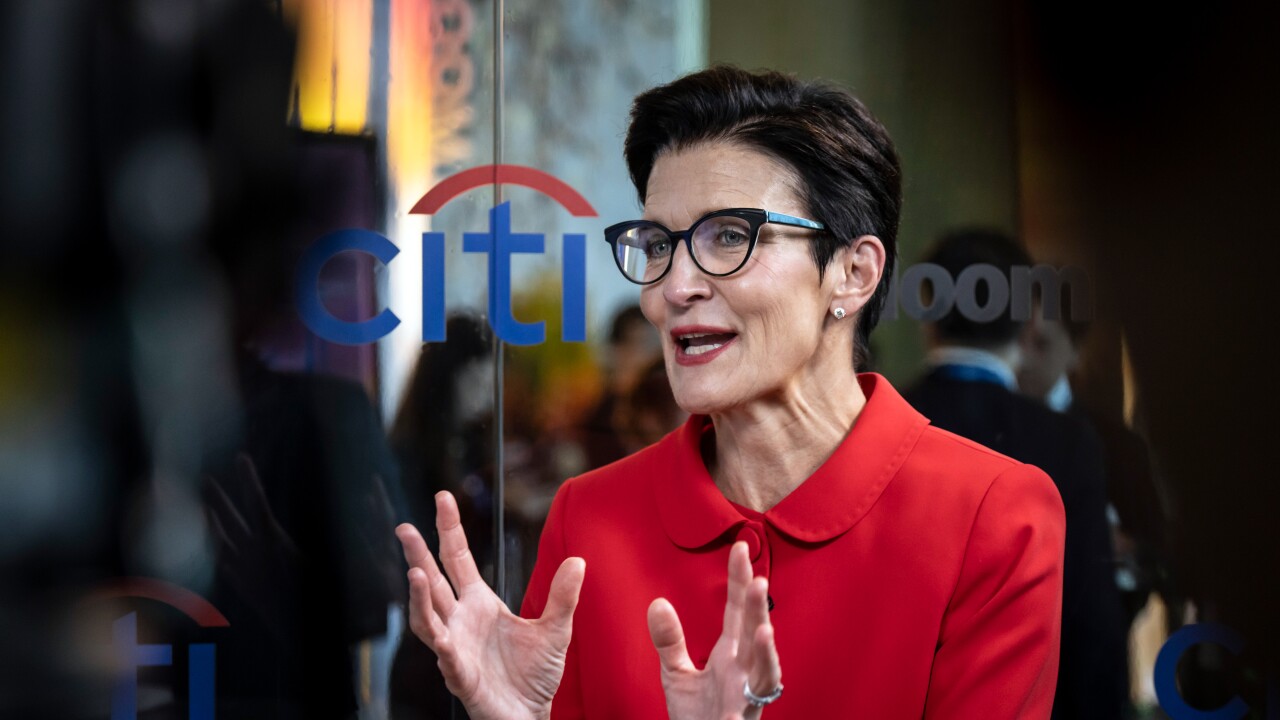Bank of America Corp.’s announcement in 2002 that it would eliminate its fees for online banking sent a shock wave through the industry and prompted several competitors to drop their own fees.
But after B of A announced Wednesday that it would offer free online trading, few of the online brokerages that would be directly affected by a price war said they have any interest in matching the offer.
Many online brokerages have been beefing up their banking services. Observers said B of A is trying to win new customers and get those it already has to increase their deposits. Several brokerages said they did not view B of A’s offer as a threat, but industry watchers said the move would likely have lasting repercussions that ultimately could drive down pricing for online trading.
Charles R. Schwab, the chairman and chief executive of Charles Schwab Corp. of San Francisco, said in an e-mail that “free trade offers have been around for quite some time in the marketplace, both from Schwab and from other institutions,” but few customers find them compelling by themselves, and most people are looking for service as well as low prices. “Knowing there is no free lunch, consumers look carefully at the whole picture,” he wrote.
Katrina Becker, the director of communications and public affairs for TD Ameritrade Holding Corp., said her company offered free trades in 2000, but customers were looking for more.
For them, “it’s more than just price,” she said. “Clients need tools, they need service, they need easy navigation, research” and “if an active trader doesn’t get that, it really doesn’t matter what they get charged.”
E-Trade Financial Corp. of New York would not provide an executive for interviews, but spokespeople did send a statement by e-mail saying that “our customers are savvy enough to see this ‘free trade’ offer for what it is. The offer requires investors to keep a high balance in a low-yield product.”
“Pricing competition is not new” and “the industry has been subject to various ‘free trade’ offers in the past,” E-Trade’s statement said.
Adam Banker, a spokesman for Fidelity Investments, said that the Boston company believes its services offer value as they are priced today and that it does not plan to cut its trading fees, though it is always evaluating its pricing.
Bank of America is not the first banking company to try to court investors with free trading. In June of last year Wells Fargo & Co. said it would offer up to 50 free trades a year to customers who kept more than $250,000 in a specific type of checking account. If they met other, lower balance thresholds, their fees would be reduced.
However, Lauren Bender, the manager of the wealth management group for the Boston market research firm Celent LLC, said that offer appealed to a very narrow group of customers, and had little effect on the online trading industry.
“With Wells Fargo, this didn’t impact the brokerages,” she said. B of A’s new pricing “goes after a very different market,” and could have more of an impact.
Bank of America said Wednesday that it would offer up to 30 free online trades per month to customers who have deposits of more than $25,000.
Brian Moynihan, the president of the company’s Global Wealth and Investment Management business, said Wednesday that the idea is to encourage customers to consolidate their deposits at B of A.
“Our customers tell us they want to aggregate their relationship,” he said. B of A hopes that doing away with trading fees will “raise the profile in our customers’ minds in our capabilities in the brokerage area.”
He said that 40% of the households that bank with B of A have $25,000 available to move into B of A deposit accounts, though he would not say how many of them already keep that much money with B of A.
Mr. Moynihan compared the free trading offer to B of A’s decision in May 2002 to kill its fees for online banking. At the time, most banks saw online banking as a source of revenue and charged a monthly fee to users. Though B of A was not the first financial company to waive those fees, its massive retail banking operation carries enormous clout, and many observers say the decision pressured competitors to waive their fees as well. Free online banking is now considered standard practice.
Half of Bank of America’s 20 million active online banking customers pay bills online. It has just one million brokerage customers, and 40% of those people trade online, Mr. Moynihan said. Very few make more than 30 trades a month.
Ms. Bender said B of A’s move could spur some online brokerages to lower or drop their trading fees. “All of the brokerage firms need to be concerned,” she said, especially those that compete mainly on price, such as Scottrade Inc. of St. Louis.
Scottrade executives declined to be interviewed for this article.
Ms. Bender also called Bank of America’s strategy an “aggressive” response to brokerages that are offering more banking services, which “is really becoming the norm.” Of the major online brokerages, only Fidelity Investments does not offer online banking, she said.
Matt Schott, a research director for the brokerage and wealth management research practice at TowerGroup, a unit of MasterCard International, said that online traders are not generally active investors, and predicted that few people would take full advantage of B of A’s 30 free trades per month; in 2004, 54% of online traders made fewer than five trades a year, he said, and 42.5% made between six and 24 trades a year.
Just 3.8% of online traders make more than 30 trades per month, he said. (TowerGroup’s numbers cover all types of trades; B of A’s offer applies only to equity trades.)
Mr. Schott said banks and brokerages alike are trying to offer customers the full financial services package of banking and trading. Most brokerages offer banking products and have been “fairly active around trying to build relationships around banking and brokerage,” he said. “In a lot of respects, trading is becoming a cost of doing business that you want to minimize.”





